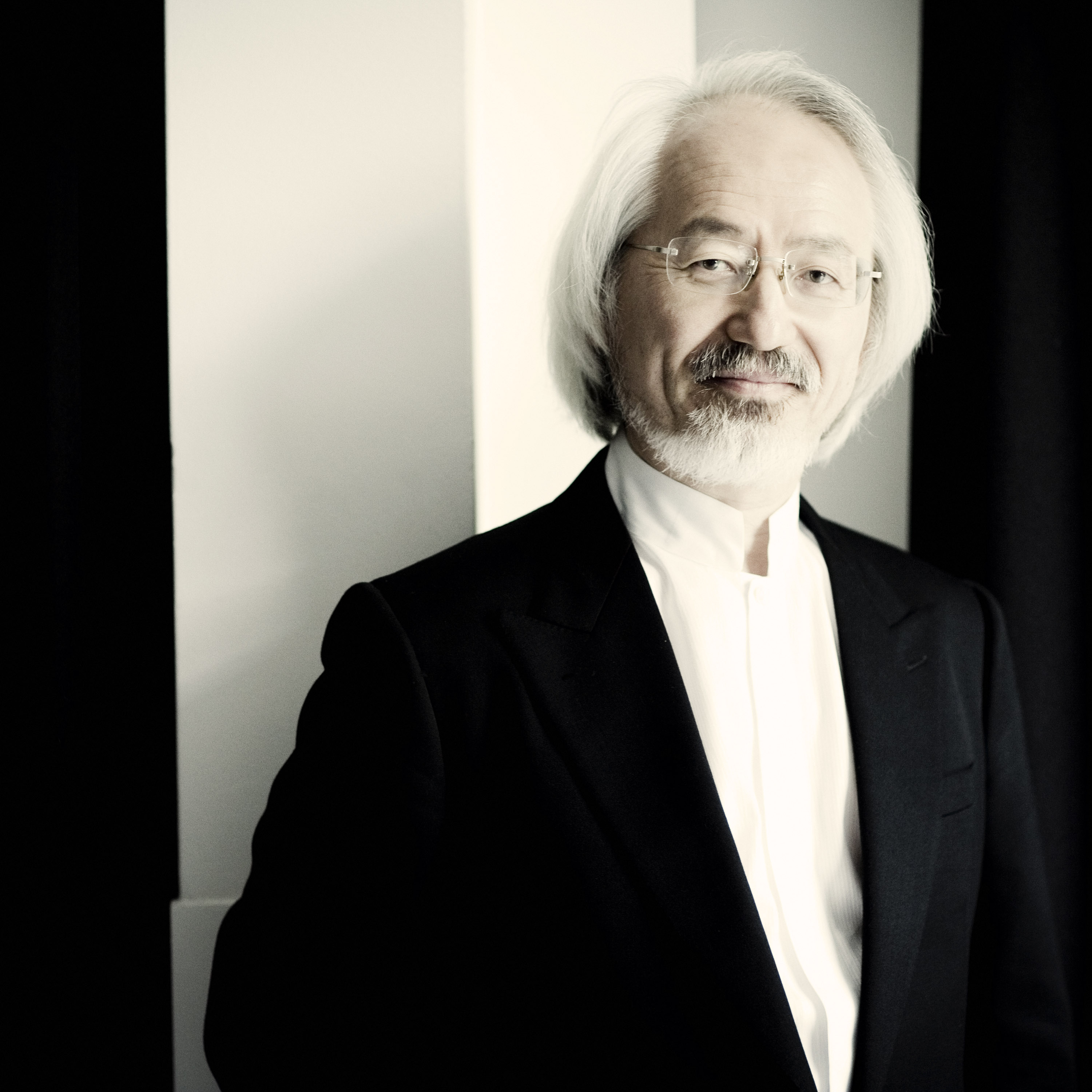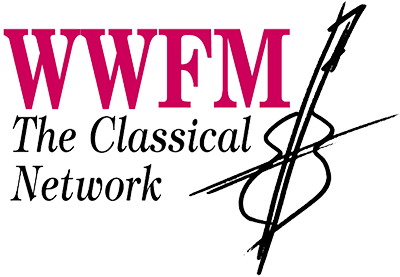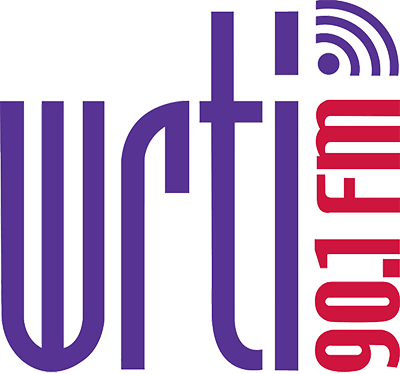
Masaaki Suzuki
photo: Marco Borggreve
Some time ago, Bridget George, our fabulous Executive Director, mentioned that she was in negotiations to for us to host the Bach Collegium Japan for the 2015 Gala Concert, deeply gladdening my heart. Then she mentioned that they would be touring with the exceptional English soprano, Joanne Lunn, and I’m fairly certain my reaction was over the top (there may have been squeaks of delight). The joining of these forces promises an experience that will delight connoisseurs and newcomers to the repertoire, alike.
Under the leadership of Maasaki Suzuki, the musicians of the BCJ have a richly-deserved reputation as some of the premiere Bach interpreters of our time, and their concerts are reliably revelatory. They recently celebrated a significant milestone with the release of the last volume of their epic project to record all of Bach’s existing cantatas, which puts them in the company of only a handful of ensembles who have succeeded in reaching this most estimable goal. One such ensemble is the Amsterdam Baroque Choir and Orchestra, under the direction of one of Suzuki’s principal teachers, the Dutch master, Ton Koopman. As such, there is more than a slight family resemblance in their recordings: both conductors produce performances that are impossibly elegant, full of polish and panache, and a level of instrumental accuracy from period instruments that equals that of their modern instruments counterparts (this will definitely come into play in my discussion of the repertoire). Where Suzuki excels in a crowded field of advanced Bach interpreters is his grasp of the theological underpinning of Bach’s music, and his ability to evoke performances from his players and singers that communicate this understanding rather directly. This may sound esoteric, but I defy you to hear the BCJ and not feel the result of Suzuki’s artistic and theological empathy.
I need to don my High Fidelity-style choral geek’s hat for a moment to discuss the recordings (feel free to skip to the next paragraph, if you like…) If you have Spotify or Apple Music, I strongly encourage you to comb their libraries for the BCJ’s excellent work. They’re recorded by the Swedish boutique label, BIS Records, and the engineering and sound quality are as fantastic as the performances (another plus is that the BCJ records in very generous acoustics). These are probably the gold standard for audiophiles. I’m waiting for the complete cantatas to be released in an anthology, before procuring them all, but I have countless individual tracks purchased from iTunes. You’ll recognize at least one name from the Bach Choir family: our dear friend, the countertenor Daniel Taylor has recorded with the BCJ (his performance of the zippy duet, Wer Eilen mit Schwachen from Cantata BWV 78 is about as good as it gets). Likewise, the ensemble’s performance of the opening chorus of Cantata BWV 75, Die Elenden sollen essen, to my ear represents a rare combination of musical, sonic, and spiritual perfection. Beginning around 3:27 into the chorus, the choir enters a sequence that includes a leap of a sixth. In turn, the lower three voice parts sing a minor sixth, and then the soprano section makes a leap of a major sixth, which pivots the proceedings, for a moment, into a music of the spheres kind of moment – sunshine bursting through for only a moment on a cloudy day, making the brightness all the more achingly beautiful. Such moments bear the temptation to underline the text painting (the singers are illustrating the word “forever” with the leap) with extra articulation or an accent, but Suzuki and his forces show extraordinary restraint, and allow Bach’s compositional power to speak for itself, with what feels like a complete sublimation of their musical egos, all in service to this stunning music. It’s not a flashy moment, just everything is absolutely as it’s supposed to be, in every possible way.
Having long admired them on recordings, I was nevertheless unprepared for the depth of their artistry in person, when we hosted them for our Gala Concert in the mid ‘aughts. One critic quipped that just to watch them tune was worth the price of admission. We chuckle, but, honestly, she was pretty much on the mark! I recall watching the continuo players hold what’s called a pedal point – a long-held bass note, in the Second Orchestral Suite. Whereas most players would hold the tone by changing bow directions more than once for the duration of the note, the BCJ players measured out precisely how much bow and how much pressure would be needed to do it with only one pass of the bow. Again, this may seem like esoterica to read about, but the artistry and craft in the physicality of their playing yields dividends in the sound and impact of the ensemble.
The program will begin with Bach’s Second Brandenburg Concerto, BWV 1047. This concerto includes spectacularly difficult music for trumpet, made all the more thrilling by the use of a baroque trumpet (the kind in use before brass instruments had valves). Guy Ferber, the soloist, is one of a few individuals (in the world) who have complete mastery of this challenging instrument, and I’m very excited to hear him in person, after admiring his playing for many years on recordings by most of the shining lights in early music. It would definitely be easier to play this concerto (though, still devilishly hard) on a modern piccolo trumpet, but the volume and scale of the earlier trumpets make them ideal duetting partners, and, when played well (as Guy surely will), they add a burnished color to instrumental ensembles who make use of them. Also on the program are concerti by Vivaldi, a sonata by Bach, and two vocal works. The first, a setting of the Gloria by Händel, was only recently discovered, in 2001. The second is Bach’s virtuosic cantata, Jauchzet Gott in allen Landen, which is quite a romp for soprano and trumpet soloists. We’ll delight in hearing Guy put his trumpet through its paces, and in hearing Joanne Lunn, an artist of pleasing warmth and stunning virtuosity offer this tour de force. We first came to admire her singing on recordings from John Eliot Gardiner’s Bach Cantata Pilgrimage in 2000. A few Christmases ago, her singing on a few of the arias from Bach’s Advent cantatas was in heavy rotation in my Advent playlist, and we’ve followed her career, ever since. It’s such a thrill to finally get to hear her in person.
The Gala Concert supports our award-winning educational outreach programs, with funding for Bach at Noon, Bach to School, our Family Concert, and our Choral Scholars program. The Choir is extremely generous with these initiatives. We believe passionately in giving students and the community the opportunity to make contact with Bach, to hear choral/orchestral performances in their schools, and to make Bach’s music understandable and accessible for future fans (and singers) through a broad range of programs. As such, the purchase of a ticket entitles you to an extremely rewarding concert (other venues on this tour include the Walt Disney Concert Hall in Los Angeles, and Carnegie Hall in Manhattan – we’re delighted to be among such an august group of presenters), as well as the satisfaction of knowing you’re helping to maintain our organization’s reach to students whose imagination is often sparked by their encounters with our beloved JSB. For more information about this concert, including links to purchase tickets, please click here.










































